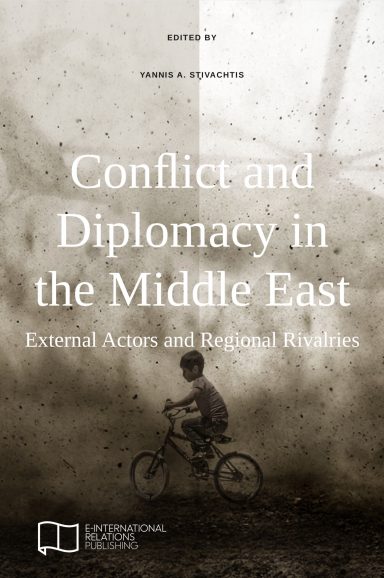The Middle East’s geographical and strategic uniqueness has made every great power in history seek to advance its interests in the region, especially in the age of oil. In addition, the region is the birthplace and spiritual center of the world’s three most important monotheistic religions. Due to its geopolitical importance, any inter- and intra-state conflict in the Middle East has the potential not only for destabilizing the region as a whole or upsetting the regional balance of power but also affecting global stability. After employing the Regional Security Complex Theory (RSCT) in order to define and delimit the region of the Middle East, the chapters of this book address the question of regional order, examine how regionalism and globalism feature in Middle Eastern integration processes, explore regional bids for hegemony, and investigate the approaches and policies of major international actors.
Conflict and Diplomacy in the Middle East: External Actors and Regional Rivalries
Edited by: Yannis A. Stivachtis – Associate Professor of Political Science at Virginia Polytechnic Institute & State University, USA.
Contributors: Jonathan Cristol, Xi Chen, Ali G. Dizboni, Onur Erpul, Stefanie Georgakis Abbott, Spyridon N. Litsas, Allison Miller, Sofwat Omar and Ayşegül Sever.
Table of Contents
GLOBALISM, REGIONALISM AND THE MIDDLE EAST
– Ayşegül Sever
THE CHALLENGES TO MIDDLE EASTERN INTERNATIONAL SOCIETY: A STUDY IN DISORDER
– Onur Erpul
UNITED STATES FOREIGN POLICY IN THE MIDDLE EAST AFTER THE COLD WAR
– Jonathan Cristol
RUSSIAN FOREIGN POLICY IN THE MIDDLE EAST UNDER PUTIN: CAN BEARS WALK IN THE DESERT?
– Spyridon N. Litsas
CHINA IN THE POST-HEGEMONIC MIDDLE EAST: A WARY DRAGON?
– Xi Chen
THE EU AND THE MIDDLE EAST: FROM THE EURO-MEDITERRANEAN PARTNERSHIP TO THE UNION FOR THE MEDITERRANEAN
– Stefanie Georgakis Abbott
THE EU AND THE MIDDLE EAST: THE EUROPEAN NEIGHBORHOOD POLICY (ENP)
– Yannis A. Stivachtis
THE UNITED NATIONS AND MIDDLE EASTERN SECURITY
– Allison Miller
HEGEMONIC ASPIRATIONS AND MIDDLE EAST DISCORD: THE CASE OF IRAN
– Ali G. Dizboni & Sofwat Omar
